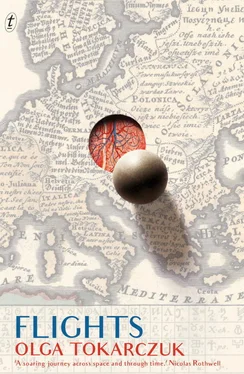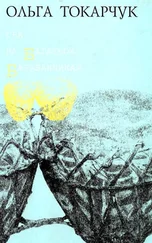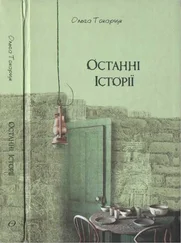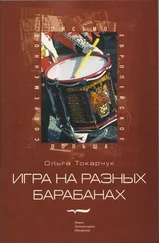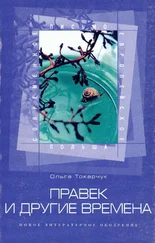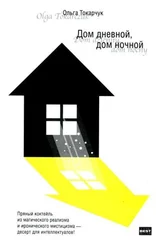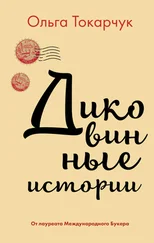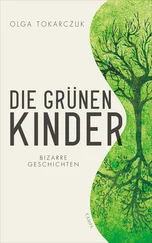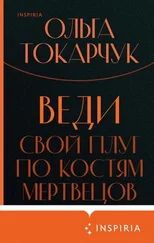Over dinner, which they ate downstairs, in the restaurant (sole and broccoli for him, for her a feta salad), the professor asked her if they’d brought his notebooks, books, outlines, until finally among those ordinary questions there came the one that sooner or later had to arrive, revealing the latest situation on the front:
‘My dear, where are we right now?’
She reacted calmly. She explained in a few simple sentences.
‘Ah, of course,’ he said happily. ‘I’m ever so slightly discombobulated.’
She ordered herself a bottle of retsina and looked around the restaurant. Mostly wealthy tourists, Americans, Germans, Brits, and also those who had lost – in the free flow of money, which they let guide them – any and all defining traits. They were simply attractive, healthy, moving with unsummoned ease from language to language.
At the table next to theirs, for example, sat a pleasant group, people who might have been a little younger than she was, happy fifty-somethings, hale and flushed. Three men and two women in fits of laughter, the waiter bringing them another bottle of Greek wine – Karen had no doubt she would have fit in. It occurred to her that she could leave her husband, who just then was scraping apart the pale corpse of his fish with a trembling fork. She could grab her retsina and as naturally as a dandelion seed fall onto a chair at that next table, catching onto the final chords of those people’s laughter, chiming in with her own smooth alto.
Of course she did not do so. She got to gathering up the broccoli from the placemat, which had jumped ship from the professor’s plate, offended at his incompetence.
‘Gods in heaven,’ she snapped, calling over the waiter to request some herbal tea. Then, turning back to him: ‘Can I help you?’
‘I draw the line at being fed,’ he said, and with redoubled strength went back to hacking at his fish.
Often she got mad at him. The man was utterly dependent on her, and yet he acted as though it were the reverse. She thought to herself that men, or at least the cleverest among them, must be prompted by some self-preservation instinct in clinging to much younger women, not realizing it, near desperation – but not at all for the reasons sociobiologists ascribed them. Since no, it was in no way connected to reproduction, to genes, to stuffing their DNA into the tiny little tubes of matter through which time coursed. It has to do instead with the presentiment men have at every moment of their lives, a foreboding adamantly hushed and hidden – that left to their own devices, in the dull, quiet company of passing time, they would atrophy faster. As though they’d been designed for a brief spurt of intensity, a high-stakes race, a triumph and, immediately afterwards, exhaustion. That what kept them alive was excitement, a costly life strategy; energy reserves eventually ran out, and then life would be lived in overdraft.
They met at a reception in the home of a mutual friend who was just finishing up his two-year appointment at their university, fifteen years earlier. The professor brought her a glass of wine, and when he handed it to her, she noticed how his totally outmoded woollen vest was coming apart at the seams, how at the professor’s hip fluttered a long, dark thread. She had just arrived to take the place of a professor who was retiring, taking on all his students; she was just furnishing her rented home and stocking up after her divorce, which would have been more painful had they had children. Her husband, after fifteen years of marriage, had left her for another woman. Karen was over forty, already a professor, with several books to her name. She specialized in lesser-known ancient cults of the Greek islands. Religious studies was her field.
It took a few years, after that meeting, before they got married. The professor’s first wife was seriously ill, which made it more difficult for him to get divorced. But even his children were on their side.
She often reflected on how her life had turned out, and she was coming to the conclusion that the truth was simple: men needed women more than women needed men. In fact, thought Karen, women could get along perfectly fine without men altogether. They tolerated solitude well, took care of their health and cultivated friendships, lasted longer – as she tried to think of other qualities, she realized she was imagining women as a highly useful breed of dog. With a certain satisfaction she began to expand this list of canine traits: they learned quickly, they liked children, they were sociable, they kept at home. It was easy to awaken in them – particularly when they were young – that mysterious, all-encompassing instinct that only sometimes was connected with the possession of offspring. But it was something decidedly greater – an encompassing of the world; the tamping into place of trails; the unfurling, then tucking in of days and nights; the establishment of soothing rituals. Rousing this instinct with little exercises in helplessness wasn’t hard. Then they’d be blinded, the algorithm would kick in, at which point it would be possible to pitch a tent, settle down in their nests, tossing everything else out of them, and the women wouldn’t even notice that the chick was a monster, and someone else’s cast-off.
The professor had retired five years earlier, receiving awards and distinctions when he took his leave, inclusion in the registry of the most meritorious academics, a commemorative publication with articles by his students; several receptions were given in his honour. One of these was attended by a comedian well-known from TV, which, truth be known, was the thing that most cheered and revived the professor.
Then they settled down permanently in a modest but comfortable home in their university town; there he occupied himself with ‘putting his papers in order’. In the morning Karen would brew him tea and make a light breakfast. She’d go through his correspondence, responding to letters and invitations, a task that hinged primarily upon declining politely. In the mornings she tried to match his early rising, sleepily preparing herself some coffee as she made his oatmeal. She’d lay out clean clothing for him. At around noon the home help would come, so Karen had a few hours to herself, as he gave in to his daily nap. In the afternoon another mug of tea, this time herbal, and then she’d see him off on the walk he took in the early evenings on his own. Reading Ovid aloud, dinner, and the nightly preparations for bed. All this interspersed with the meting out of pills and drops. Each year, for these five peaceful years, there had only been one invitation to which she’d said yes – the luxury cruises every summer around the Greek islands, where the professor gave daily lectures to the passengers, not counting Saturdays and Sundays. It was ten lectures in all, on the topics that most fascinated the professor; there was no fixed list of subjects.
The ship was called Poseidon (its black Greek letters stood in stark relief against the white hull: ΠΟΣΕΙΔΩΝ), and it contained two decks, restaurants, a billiards room, little cafés, a massage parlour, a solarium and comfortable cabins. For several years they’d occupied the same one, with a queen-sized bed, a bathroom, a table with two armchairs and a microscopic desk. On the floor a soft coffee-coloured carpet, and Karen, as she looked at it, still held out hope that in its long fibres she might still find the earring she lost here, four years before. The cabin led directly out onto the first-class deck, and in the evenings, once the professor was already asleep, Karen liked to take advantage of this amenity and stand at the railing to smoke her one daily cigarette, gazing out at the lights in the distance they had passed. The deck, heated by the sun during the day, now, too, gave off a warmth, while a dark, cool air flowed out over the water, and it seemed to Karen that her body marked the boundary between day and night.
Читать дальше
